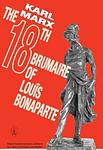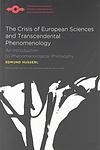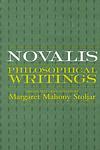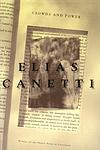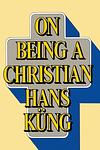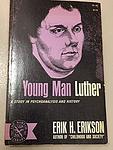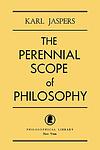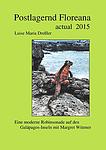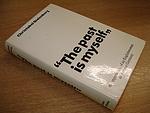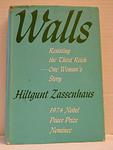The Greatest German "Nonfiction" Books of All Time
Click to learn how this list is calculated.
This list represents a comprehensive and trusted collection of the greatest books. Developed through a specialized algorithm, it brings together 300 'best of' book lists to form a definitive guide to the world's most acclaimed books. For those interested in how these books are chosen, additional details can be found on the rankings page.
Genres
Countries
Date Range
Reading Statistics
Click the button below to see how many of these books you've read!
Download
If you're interested in downloading this list as a CSV file for use in a spreadsheet application, you can easily do so by clicking the button below. Please note that to ensure a manageable file size and faster download, the CSV will include details for only the first 500 books.
Download-
26. The 18th Brumaire of Louis Bonaparte by Karl Marx
This historical work provides a detailed analysis of the coup d'etat that brought Louis Bonaparte to power in France in 1851. The author examines the social and political dynamics that allowed Bonaparte to seize control, including the role of the bourgeoisie and the proletariat. He presents a critique of the event itself and its implications for the class struggle, suggesting that history repeats itself, first as tragedy, then as farce.
-
27. The Crisis of European Sciences and Transcendental Phenomenology by Edmund Husserl
This book is a philosophical work that explores the crisis facing the sciences in Europe, arguing that this crisis stems from the disregard for transcendental phenomenology. The author asserts that the sciences have lost their grounding in the world of lived experience and have become too abstract and disconnected from human life, leading to a crisis of meaning. He proposes a return to the "lifeworld" and a recentering of science on human experience, using the methods of phenomenology to uncover the essential structures of consciousness and the world.
-
28. The Gay Science by Friedrich Nietzsche
The book in question is a philosophical work that delves into the author's ideas on morality, truth, and the nature of human existence. It is known for its poetic and aphoristic style, presenting a critique of contemporary culture and the Western intellectual tradition. The author introduces the concept of the "eternal recurrence" and famously proclaims the "death of God," challenging readers to confront the implications of a world devoid of divine authority and to embrace the potential for creating their own values. The work is a celebration of art, science, and the joyous wisdom that comes from living a life of intellectual inquiry and creative freedom.
-
29. I Will Bear Witness by Victor Klemperer
"I Will Bear Witness" is a chilling personal account of life in Nazi Germany from 1933-1941. The author, a Jewish professor, meticulously details the daily life under Hitler's regime, capturing the fear, oppression, and constant threat that Jews faced. The diary serves as a powerful testament to the horrors of the Holocaust and the resilience of those who endured it.
-
30. Philosophical Writings by Novalis
"Philosophical Writings" is a collection of works by a key figure in German Romantic philosophy. The book explores the author's thoughts on a wide range of subjects including art, religion, morality, nature, and the human mind. The author's poetic and imaginative style of writing is used to challenge traditional philosophical ideas and to propose a more holistic understanding of the world. The text is recognized for its deep insights and its significant influence on later philosophical and literary movements.
-
31. Beethoven's Letters by Ludwig van Beethoven
This book offers an intimate glimpse into the personal life and inner world of one of classical music's greatest composers through a collection of his correspondence. Spanning from his early years in Bonn through his rise to fame in Vienna and until his death, the letters reveal his relationships with family, friends, and fellow artists, his struggles with hearing loss, and his insights into his creative process. They also reflect his financial worries, his search for love, and his passionate involvement with the political and cultural movements of his time. The letters are a testament to his enduring legacy and provide a deeper understanding of his music through the lens of his personal experiences and emotions.
-
32. Illuminations by Walter Benjamin
"Illuminations" is a collection of essays that delve into the complex interplay between society, culture, and art. The book explores the nature of artistic expression and its role in historical contexts, examining how cultural artifacts reflect and influence the conditions of their times. It discusses the concept of the "aura" of artworks, the impact of technological reproduction on art's value and meaning, and the role of the critic in interpreting cultural texts. The work also includes a seminal essay on the philosophy of history, which critiques traditional historical narratives and argues for a more nuanced understanding of the past, informed by Marxist theory and a sensitivity to the cultural and political undercurrents that shape human experience.
-
33. The Structure And Practice Of National Socialism by Franz Neumann
The book provides a comprehensive analysis of the political, social, and economic systems of National Socialism in Germany from its rise to power to its functioning during World War II. It delves into the regime's ideologies, the role of terror and propaganda, the structure of the state, and the interplay between different power groups within the Nazi hierarchy. The author critically examines how the regime sought to create a totalitarian state, with a particular focus on the suppression of individual freedoms and the mechanisms of control used to maintain its authority. Through this exploration, the book offers insights into the complexities and contradictions of the Nazi system, as well as the devastating impact it had on society and the world at large.
-
34. Crowds And Power by Elias Canetti
This book is a seminal work of social philosophy that explores the dynamics of crowds and their influence on power structures. Delving into the psychology of mass movements and the behavior of individuals within groups, the text examines how crowds emerge, their development, and their impact on history and politics. The author draws from a wide array of disciplines, including sociology, psychology, and anthropology, to analyze the nature of power itself and the role that fear, religion, and symbolism play in the formation and manipulation of collective behavior. The work is both a theoretical study and a critique of the forces that shape human civilization and the often irrational nature of group influence.
-
35. On Being A Christian by Hans Kueng
The book in question is a comprehensive exploration of Christian faith and its relevance in the modern world. It delves into the historical and philosophical foundations of Christianity, examining its core doctrines, ethical implications, and the challenges it faces in contemporary society. The author critically assesses the role of the Church, the credibility of Christian beliefs in light of scientific progress, and the potential for dialogue with other religions. Throughout, the work emphasizes the importance of a genuine and lived faith, encouraging believers to embody the teachings of Jesus in a way that is both authentic to the Christian tradition and responsive to the needs of today's world.
-
36. The Messianic Idea In Judaism, And Other Essays On Jewish Spirituality by Gershom Scholem
This book is a collection of insightful essays exploring the complex nature of Jewish mysticism and the development of the Messianic idea within the Jewish tradition. The author, a preeminent scholar of Jewish mysticism, delves into the historical and spiritual evolution of these concepts, examining their origins, their influence on Jewish thought, and their manifestations throughout Jewish history. The essays also discuss the role of Kabbalah and other mystical traditions in shaping the spiritual landscape of Judaism, offering readers a deep and nuanced understanding of the spiritual dynamics that have animated Jewish life and thought for centuries.
-
37. Young Man Luther by Erik H. Erikson
This book is a psychological analysis of a seminal figure in religious history, focusing on his early life and the internal struggles that led to his revolutionary actions. The author, a prominent psychologist, applies psychoanalytic theory to understand the subject's tumultuous journey from a conflicted young man to a leader who would challenge the very foundations of the Church. The work delves into the protagonist's experiences with authority, his quest for spiritual certainty, and the personal crises that fueled his theological breakthroughs, ultimately shaping the course of Western civilization.
-
38. The Perennial Scope Of Philosophy by Karl Jaspers
The book in question explores the enduring nature of philosophical inquiry, examining how it transcends temporal and cultural boundaries to address fundamental questions of existence, knowledge, and ethics. The author argues that philosophy is not confined to any particular era or dogma but is a continuous pursuit of truth that evolves with human thought while remaining rooted in the quest for universal understanding. Through a critical examination of historical philosophical movements and their contributions to the ongoing dialogue, the work emphasizes the importance of philosophy in providing a framework for individuals to confront the mysteries of life and the universe, encouraging readers to engage in their own philosophical contemplation.
-
39. A Comparative Study Of Total Power by Karl Wittfogel
The book in question is a scholarly examination of the concept of 'hydraulic civilization,' a term used to describe societies that manage large-scale water projects such as irrigation and flood control. The author argues that the bureaucratic structures necessary to control water resources in arid regions historically led to the centralization of power and the development of autocratic or despotic forms of government. Through comparative analysis, the work explores how the management of water resources influenced social, economic, and political structures, and how this 'total power' shaped the civilizations in question, with a particular focus on Asia. The study delves into the relationship between natural environments, technological capabilities, and the evolution of political systems.
-
40. Ideas and Opinions by Albert Einstein
This book is a collection of essays, letters, and speeches from a renowned physicist, offering his thoughts on a wide range of topics. It includes his insights on science, philosophy, religion, politics, peace, education, liberty, and morality. The physicist's reflections on his own scientific discoveries and the theories of other great thinkers are also discussed. This compilation provides a comprehensive view of his intellectual development and personal beliefs.
-
41. Systematic Theology by Wolfhart Pannenberg
"Systematic Theology" is a comprehensive exploration of Christian doctrine from the perspective of a renowned German theologian. It delves into the nature of God, the creation of the universe, and the essence of humanity, among other topics. The author's approach is unique in that he uses historical and scientific knowledge to interpret and explain Christian beliefs, making this a significant contribution to modern theological thought.
-
42. The Social Construction Of Reality by Peter Berger, Thomas Luckmann
The book explores how individuals and groups create and maintain societal norms and values through their interactions, shaping reality through a process called social construction. It delves into the mechanisms by which knowledge and understanding of the world are collaboratively built, emphasizing the role of language and communication in this process. The authors argue that the reality perceived by a society is a complex interplay of historical, cultural, and social factors, which are continuously reconstructed and reinforced through social practices. This work provides a foundational analysis of the sociology of knowledge, examining how subjective meanings become objective elements of culture and influence human behavior and social institutions.
-
43. Studies in Iconology by Erwin Panofsky
"Studies in Iconology" is a seminal work in the field of art history that examines the use of allegory, symbol, and motif in visual art. The author uses a method known as iconology, which is the study of the content and meaning of works of art, as opposed to their form. By doing so, he provides a deeper understanding and interpretation of various artworks, particularly those from the Renaissance period. The book also delves into the cultural, historical, and psychological contexts in which these works were created, offering an in-depth exploration of the symbolism and significance of imagery in art.
-
44. The Courage to Be by Paul Tillich
"The Courage to Be" is a philosophical work that explores the concept of courage in the face of existential threats and anxieties. The author argues that courage is not simply a bold act in the face of physical danger, but also the strength to affirm one's own being in spite of non-being, despair, and death. The book also discusses the role of God as the ultimate source of courage and suggests that embracing our existential anxieties can lead to self-affirmation and spiritual growth.
-
45. Postlagernd Floreana by Margret Wittmer
The book is a captivating memoir that recounts the extraordinary experiences of a woman and her family who, in the 1930s, left their conventional life behind to start anew on the remote Galápagos island of Floreana. The narrative delves into the challenges they faced, from harsh living conditions to mysterious events, including the arrival of eccentric settlers and the unexplained disappearances that later sparked rumors and intrigue. The author's personal account provides a unique glimpse into the pioneering spirit of the era and the allure of untamed nature, while also painting a vivid portrait of human resilience and the complexities of seeking paradise off the beaten path.
-
46. The Past Is Myself by Christabel Bielenberg
"The Past Is Myself" is a memoir of an Englishwoman who married a German lawyer and lived through the Second World War in Nazi Germany. The book provides a personal account of the challenges and moral dilemmas she faced during this tumultuous period, offering a unique perspective on life under the Third Reich. Her narrative captures the fear, courage, and resilience of ordinary people caught in the grip of a totalitarian regime, as well as her own journey of adapting to a foreign culture and confronting the horrors of war and oppression. The author's experiences highlight the complexities of identity, loyalty, and survival in a time of pervasive political terror.
-
47. Walls: Resisting The Third Reich by Hiltgunt Zassenhaus
"Walls: Resisting The Third Reich" is a powerful memoir of courage and defiance, recounting the experiences of a young German woman during World War II who risked her life to oppose the Nazi regime. Working as an interpreter in the German courts, she secretly aided Scandinavian prisoners of war, passing along messages and providing them with hope and support. Her clandestine activities, carried out under the constant threat of discovery and execution, showcase the profound bravery and moral conviction required to resist oppression from within the very heart of a totalitarian state. The narrative not only captures the personal struggle against tyranny but also serves as a testament to the human spirit's capacity for resistance and solidarity in the face of overwhelming adversity.
-
48. The Burden of Our Time by Hannah Arendt
"The Burden of Our Time" is a profound exploration of totalitarianism and the nature of power. The author delves into the rise of authoritarian regimes in the 20th century, particularly focusing on the Nazi and Stalinist systems. The book examines the socio-political conditions that enable such regimes to seize power, and the mechanisms they use to maintain control. It also presents a philosophical analysis of the human condition, exploring themes of freedom, authority, and the public and private realms of life.
-
49. Man Meets Dog by Konrad Lorenz
In "Man Meets Dog," the author explores the deep bond between humans and dogs, tracing the origins and development of this unique relationship. Through a combination of personal anecdotes and scientific insights, the book delves into various aspects of canine behavior, psychology, and the evolutionary factors that have shaped the human-dog partnership. The author, an eminent ethologist, uses his observations of his own dogs to illustrate broader themes about communication, affection, and the instinctual basis of domestication, offering readers a thoughtful reflection on why dogs hold such a special place in human society.
-
50. Sudelbücher by Georg Christoph Lichtenberg
"Sudelbücher" is a collection of thoughts, observations, and philosophical reflections by a prominent German satirist. The book is a compilation of his personal notebooks, where he jotted down everything from scientific observations to social commentary and personal introspection. The author's unique perspective and witty voice provide a fascinating glimpse into the mind of an 18th-century scholar, making this book an important piece of German literature and Enlightenment thought.
Reading Statistics
Click the button below to see how many of these books you've read!
Download
If you're interested in downloading this list as a CSV file for use in a spreadsheet application, you can easily do so by clicking the button below. Please note that to ensure a manageable file size and faster download, the CSV will include details for only the first 500 books.
Download